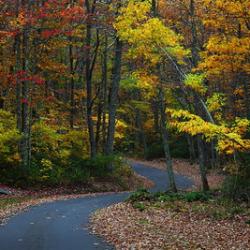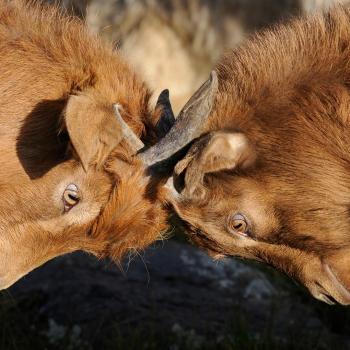Druid Reflections on the UU Experience, Part 1
It sounds like the beginning of a joke, doesn’t it? Like the classic: why did the chicken cross the road? Actually, I quite like that joke. It’s not very funny, maybe, but it reminds us to think like a chicken. This isn’t one of Aesop’s animals, a fox trotting across the street to the post office to mail a letter to her sweetheart, or a goat on his way to the grocery store. Why did the chicken cross the road? That is to say, what’s a road to a chicken?
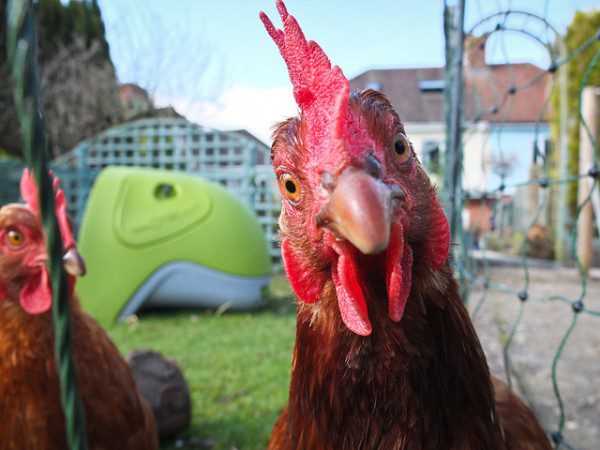
I think it started as a lark. Not the chicken — I mean, the desire to go to church. I have never been what you might call a group joiner. People my age who have been “unchurched” for most if not all of their lives may start looking for a community when they have children of their own, hoping for a nurturing environment in which their kids can begin to explore their spiritual side while mom and dad steal an hour of quiet from the endless round of daycare, dance class, soccer games and such. Clever me, I skipped right over this step by marrying a man with kids from a previous marriage, and they already have enough relatives, grandparents and step-grandparents to drag them to half a dozen different kinds of church — that is, when my husband and I aren’t rousing them at dawn to light candles and sing the sun to rising.
If anything, my urge to find a church was selfish: as the classic not-so-very-evil stepmom, without kids of my own, I began to worry that one day I’d end up a lonely old widow shambling around in her slippers with only her cats for company. Sometimes Pagans can be a little bit scary about old women. They can idolize the hag on the outskirts of the village: call her a “witch,” give her some symbolic power as the outcast and edge-walker, and then get on with ignoring her. It might be a good idea to start making some nice Christian friends now, I thought, so there’ll be some folks to miss me when I die, or at least notice my absence before the cats got to gnawing on my bones.
The deeper truth, though, is that I often feel as if I have more in common with progressive Christians — those who are “unchurched” or “de-churched” or “SBNR” or merely ambivalent about church and prefer to call their communities “societies” or “fellowships”. And yet I never feel more profoundly Pagan than when I’m surrounded by people who aren’t. It’s this strange contradiction that I think lies behind a lot of the on-going discussion in our community about the usefulness and accuracy of the labels we use for our big, floppy and sometimes quite unwieldy Pagan umbrella. Modern Paganism continues to work towards embodying values like social justice and ecological awareness, compassion and respect for others. But we are a very young community still, and it’s easy for us to get distracted by the desire to prove our sincerity, to flaunt our uniqueness, or to throw around our intellectual weight. It’s especially tricky for those of us who place value on interfaith outreach, who see it not as a talent show where we can show off our differences, but as an authentic engagement with others who have something to teach us — if we are willing to listen, to be challenged, and to change. Sometimes I need something more from my spiritual community than yet another quest for the next best meditative technique or nitpicking over the historical accuracy of this or that folk tradition. Other times, I just need to dance in a circle to the weaving rhythm of the drums.
So my search for a church began. It wasn’t a very long one. I knew Unitarian Universalism to be a liberal spiritual community where I was likely to find those progressive values that most inspire me. I’m sure many UUs would say that they strive to be accepting of everyone, regardless of political persuasion, but then liberals always say that, bless their bleeding hearts. UU also has a reputation for being Pagan-friendly — the saying goes that in UU, on the east coast, Jesus is optional; in the midwest, God is optional; and on the west coast, clothing is optional. (Though I have yet to test this hypothesis in full.) I knew a few UU-Pagans who adored their church communities, and glancing through some of the ubiquitous explanatory pamphlets, I found myself nodding along with the Seven Principles. Inherent worth and dignity of all? Yep. Justice and compassion? Check. Ecological awareness of the interdependent web of all existence? You bet. Nurturing the spiritual growth of the community and its members? Ah, that would be the real test…
If I was going to join any kind of church, naturally it would have to accept me as an out-and-proud, enthusiastically polytheistic, animistic, tree-hugging, dirt-worshipping Druid, and not ask me to water down my practice or box in my theology. But it would also have to offer something more than mere acceptance.
Acceptance on its own, while nice, doesn’t do much for me, perhaps for the same reason that Groucho Marx wouldn’t join any club that would have him as a member. I’ve often found myself wondering if this explains the tendency, among Pagan and non-Pagan spiritual seekers alike, to wander in and out of various groups, from coven to grove to circle and back again. I’ve seen this behavior attributed to a seeker’s lack of maturity or fear of commitment, taken as a sign that they have no respect for the tried-and-tested lessons of history and tradition, or that they do not take their spiritual journey seriously — or just the opposite, that they are too serious, too idealistic and impatient with the necessary imperfections of real religious community in which, it is argued, we must “take the bad with the good” and accept hierarchy and literalism as necessary components of sustainable community and meaningful worship. I don’t think any of these claims are true, at least not as often as we might think.
As an apologetic dabbler myself, I’ve dropped in on my fair share of public rituals hosted by groups of various Pagan persuasions. Some of them have been elaborate, beautiful and cold; some have been endearingly clumsy; some, full of unexpected rainstorms that doused all the candles and left the smudge sticks soggy. But what all these groups had in common was that, eventually, I found myself reading the myriad subtle signs which politely but firmly communicated, “All Positions Filled.”
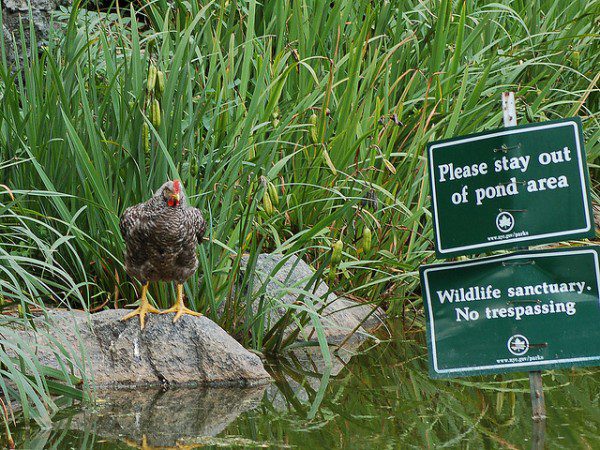
As an embodied, experiential approach to the spiritual life, Paganism lends itself to charismatic leaders and a passion for impressive ritual performance. The appeal of joining an established group is that it can offer organization and infrastructure to support a deepening spiritual life in relationship with others, but the tendency among many Pagan groups (as I’ve experienced them, anyway) is to assume that new members are also neophytes, whose participation in the community is necessarily shallow, limited until they’ve proven themselves to be competent and charismatic in their own right. In other words, too many Pagan groups are not so much looking to grow their community as to expand their audience. “Acceptance” in such cases means little more than the price of admission, as in “we accept all major credit cards.” This kind of acceptance can leave many spiritual wanderers feeling unmoved — or rather, inclined to move on — still always seeking that special something, the magic of connection that carries us beyond the relative safety of mere acceptance and into a place where we feel valued.
It was in my own wanderings that I first came upon Unitarian Universalism. What did UU have to offer, besides simple acceptance? It turns out, this is a question UUs have been asking themselves for centuries now. In his post The baby is the bathwater: Why I haven’t joined the Unitarian church, non-theist Pagan John Halstead explored his ambivalence about the UU community, quoting writers from a hundred years ago whose handwringing over wishy-washy liberal impotence “could have been written today.” John noted:
It could have been written by me, or by many other people with whom I attend the First Unitarian church on Sundays. I think there are a handful of people there who believe in Unitarian Universalism, for whom UUism is their religion. But it seems that, for many more — Pagans, Buddhists, Christians, and others of various labels or none at all — Unitarianism is less an object of faith or a religious identity, and more of a convenient meeting place.
And so, it was with a mixture of curiosity and low expectations that I attended my first Sunday service at the local UU church last year. I’d read on the church’s website that their minister didn’t even identify as Christian; she was a Buddhist, with an appreciation for nature-centered spirituality. Since my husband had been raised Buddhist and we were both madly in love with the natural world, we figured this church might be a good place to start. One Sunday morning in July, almost on a whim, we decided to drop in. As an unreformed dabbler, my hope springs eternal that the next group I explore will be the one that feels like home; and in the meantime, sitting in on the worship services of other faiths always gives me something to think about, or perhaps just a reminder of all the reasons I love being Pagan. So we headed through the doors that Sunday, sharpie-scribbled guest name tags sticky on our breasts, like secret agents undertaking a kind of covert interfaith operation. Why did the Pagan go to church? To get to the other side…
But what’s a road to a Pagan who’s grown so used to wandering in the spiritual wilderness that she’s more inclined to stop and talk to the trees than to another human being? Where we were going, we didn’t need roads. But Unitarian Universalism didn’t even need a minister, it turned out — because that Sunday, the minister was on her yearly summer sabbatical and a member of the congregation was up at the lectern, sharing his thoughts on the spiritual value of uncertainty. Two points to UU, I thought to myself: giving a voice to the community instead of having hang-ups about hierarchy, and allowing that voice to speak about the beauty of questioning, curiosity and mystery. And then something magical happened. After the service, the woman sitting next to us asked us what we thought, and we ended up having a great conversation about whether or not spiritual uncertainty really was valuable, and what were its limitations, and how do we find solid ground to stand on in order to work for those principles of compassion, respect, justice and peace that we love so well.
Here was a community arguing passionately with itself. Here was a community in tension, prodding at the boundaries between self and other. Broken open at its very heart, incomplete and in process. Here was a community, I thought, with something to offer. What it offered was not simple answers or a self-identity I could wear like a suit of armor. What it offered was a sense of spaciousness, big enough for even wanderers like me, a space in which my wandering itself might be valued, might even be essential. And what it offered was, yes, a convenient meeting place.
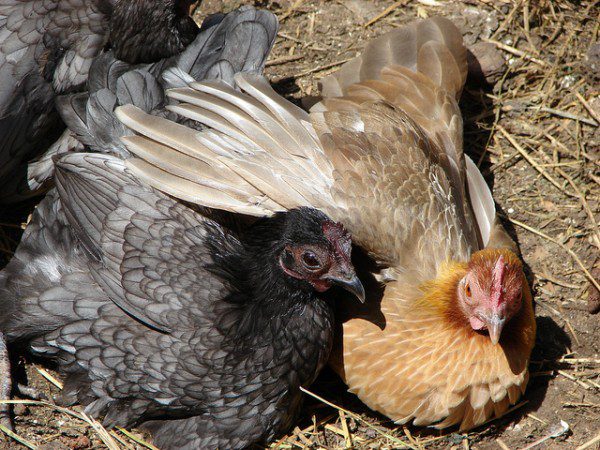
Oregon Dept. of Agriculture (cc) 2008
I came to UU out of curiosity; but I’ve stayed because this community has proven big enough to embrace those tensions that energize and inspire my spiritual journey. I find myself challenged to think and rethink, to grow, to become a better person; but just as often I’m the one challenging others, and always they respond to that challenge as though it were something to be treasured rather than something to be avoided. I stay, because this community is one within which I can continue to cross boundaries, without having to leave my community behind.
This, really, is the theme of this series here on Nature’s Path, to which I have been trying to introduce you in my own rambling sort of way. Maybe UUs are a little bit wishy-washy. But as the Daoists will tell you, there is no rock so hard that it can withstand the soft persistence of water. Over the last year, I’ve explored many facets of UU life: the chalice circle, the Sunday service, the CUUPS group, the annual church retreat, even the boardroom. And if there’s one thing I’ve learned from this on-going exploration, it’s that, when it comes to us wanderers, never underestimate the value of a convenient meeting place.







